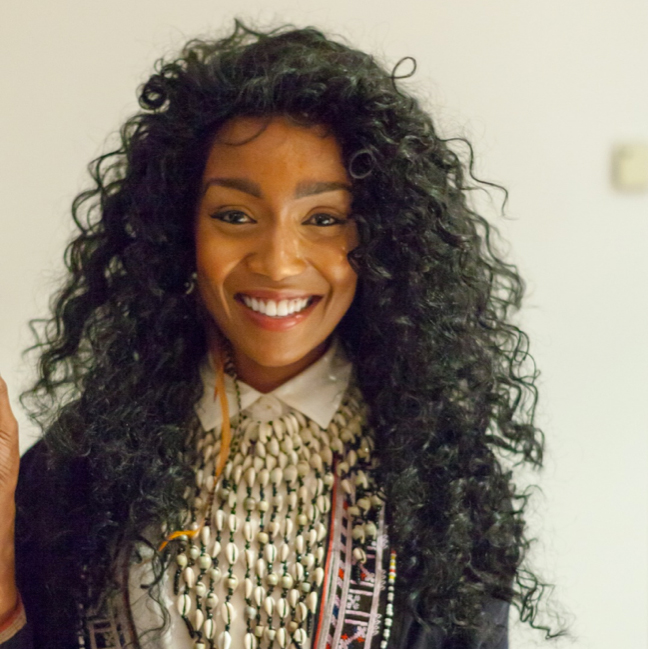Vicky Ngari
Tue, 2020-10-20 14:57 — Amine.ElGaliIn Brighton and London, she studied Film and TV, then creative writing, majoring in sociology and journalism. She realized during her first year at University that she could learn a lot out of experience, besides theorical knowledge in the classroom. « On the ground, I taught myself how to network », she says. At the time, she had two part-time jobs, working as a receptionist and at a gym. There, she discussed so much about styling with a fashion designer who came to exercise, that she got invited on a shoot.
While at University, she became a beauty queen, first as Miss Kenya in 2008 and then as Miss East Africa in 2009, insisting on wearing African inspired dresses she designed herself. She became an assistant stylist with Claire Watson, a freelance in demand, and kept on learning on the ground. « One time, Claire was overbooked and had to throw me to a deep end, a shooting for a tabloïd magazine. I had an idea of a set reminding ancient Greece, but the editor walked in and said : « No, we don’t do Greek gods here, take this out ». I learned that you have to listen to what the editors say and to think about the target audience ».
African style, education, opportunities
She was already convinced that the African style was not seen in fashion the way it should. During a Fashion week in London, she was looked upon as an UFO, because of her flashy African prints. But she wasn’t distracted. « People in Africa wear prints all the time ! I still think we are not penetrating further the industry, in terms of what African fashion means, culturally and socially. It has a lot do to with heritage and spirituality. Our ancestors wore certain colors to communicate their intentions. When I design my bag, for instance, I go back to traditional messages of baskets, hand woven and naturally dyed with tree bark ».
Her beauty queen status got her invited to many talks and platforms, such as the One Goal Campaign before the soccer World Cup in South Africa in 2010, or the Unleash Innovation Lab in Denmark in 2017, initiated by the United Nations to gather 1000 change-makers Milleniums. She fell in love with the concept of social entrepreurship and the topic of education. “I was sitting in rooms full of white men in suits, discussing the future of African youth. And I’m sorry, but Africa doesn’t need just aid or money, but opportunities. The African youth must be included and be part of the solution”.
To work from the ground in rural communities
She took action. In 2016, she launched the educational program Good Ambition, the basis of an App she is working on, named “Skilledit”. “The idea is to tackle opportunity for young people and women in all the areas who lack financial and social advance, to be able to see their own environment as a place to skill themselves”. She went to rural communities in Kenya, gathering them as sustainable manufacturers. The “Rural Retail” platform has gathered 350 young people so far, helping her producing bags for her brand, “Vicky Ngari”.
As a young leader, she came to Marrakesh in 2017 to attend the Atlantic Dialogues Emerging Leaders program, and was proud to “fit in an arena where you can actually bring your contribution in terms of creative thinking, and get support. Creative thinking, in my view, comes naturally and serves as lateral thinking to solution, like the little boy who says “deflate the tyres”, when a truck is stuck in a tunnel and experts struggle to get it out.”
This young lady, who loves nature, herbs and plants, is also a keen reader of mythology. Her dream? “To work in cultural diplomacy to help build more aligned education systems for creative industries with Indigenous sustainable practises. Growing a successful fashion brand and technology tool as my demonstration, ultimately starting my own schools in nature”. As she defines it, it just looks like the intertwined leads of her personal basket.










